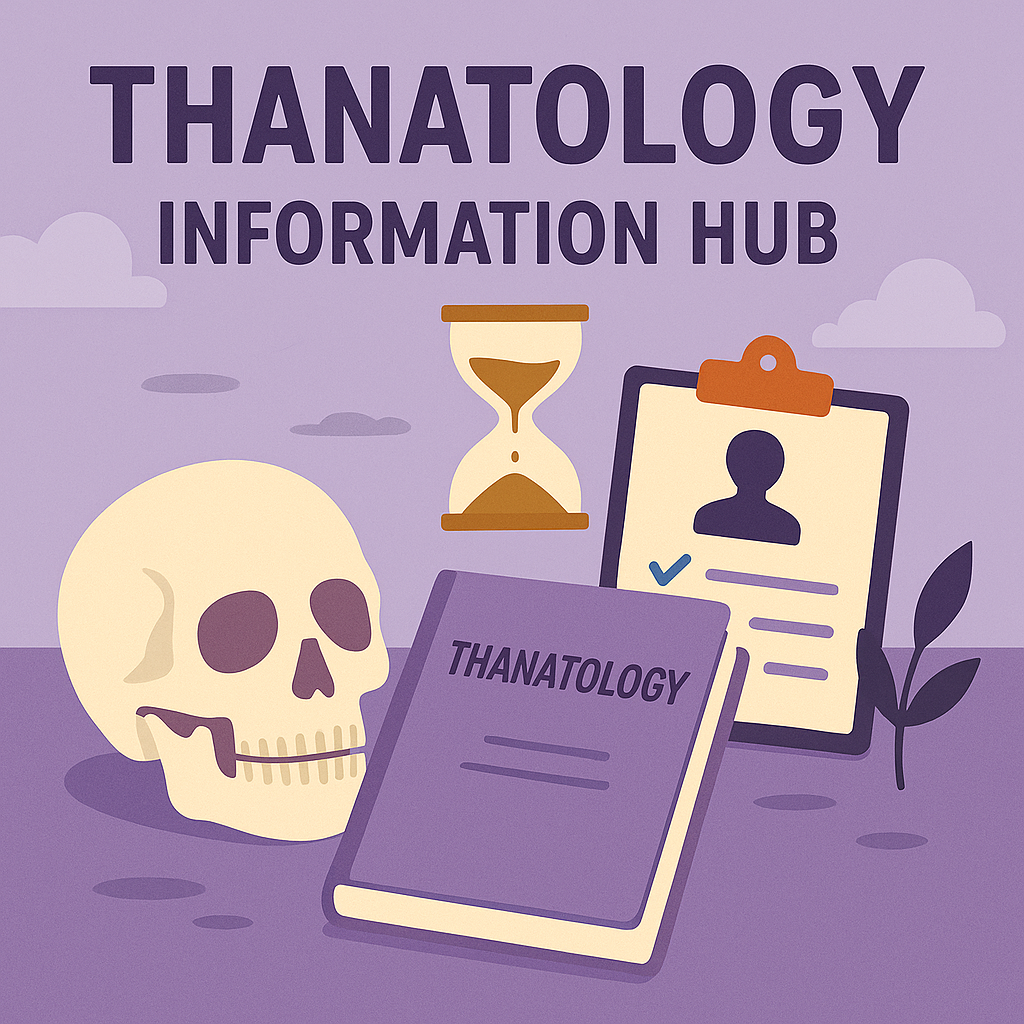Understand the study of death, dying, and what it means for the living.
The Thanatology Hub
Thanatology is the study of death and dying, including the physical, emotional, cultural, and ethical aspects of the end of life… and how we cope with it.

Key Things To Know
Thanatology offers insight into the emotional, medical, cultural, and spiritual dimensions of dying and grief. It can support professionals, families, and communities in navigating one of life’s most universal experiences.
- Thanatology is the academic and applied study of death and dying: It covers topics like grief, end-of-life care, cultural rituals, ethics, legacy, and the psychology of loss.
- The field is interdisciplinary by nature: Thanatologists often come from backgrounds in psychology, social work, medicine, chaplaincy, hospice, education, and even law or philosophy.
- It supports both the dying and the living: Thanatologists may help individuals come to terms with their own mortality, support grieving families, or train professionals in compassionate care.
- Grief and bereavement are central areas of study: Thanatology explores how people mourn, what helps or hinders healing, and how different cultures express and process loss.
- It helps normalize conversations about death: By reducing fear and stigma, thanatology encourages more honest, compassionate, and informed discussions about end-of-life choices.
- Certification in thanatology is available: Professionals can pursue credentials (such as CT or FT through ADEC) to specialize in death education, grief counseling, or support services.
- Ethics and communication are key components: Thanatology explores how to navigate difficult decisions, honor dignity, and balance truth-telling with cultural or emotional sensitivity.
- Thanatology informs public health and policy: Understanding patterns of grief and mortality helps shape better healthcare systems, bereavement leave policies, and aging services.
- It’s not just for professionals: Many people turn to thanatology out of personal interest, especially after experiencing a significant loss or preparing for their own end-of-life journey.
- The field continues to evolve: As society, medicine, and cultural beliefs change, so does the study of death—addressing topics like digital legacies, medical aid in dying, and ecological funerals.
Resources
Frequently Asked Questions
Disclaimer: The information provided on this website and by Buried in Work is for general informational purposes only and should not be considered legal advice. Please consult with a qualified attorney or subject matter expert for advice specific to your situation.
